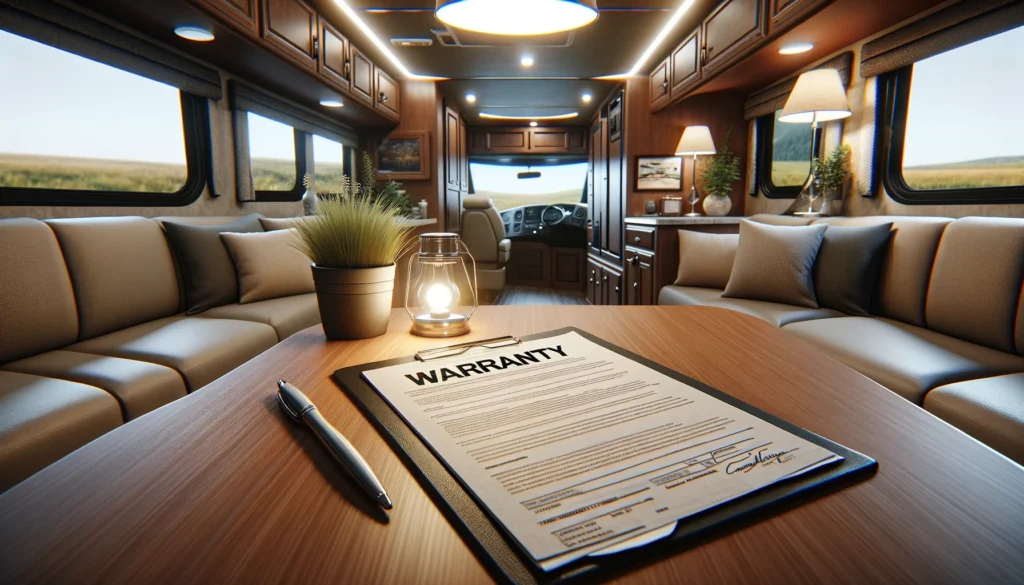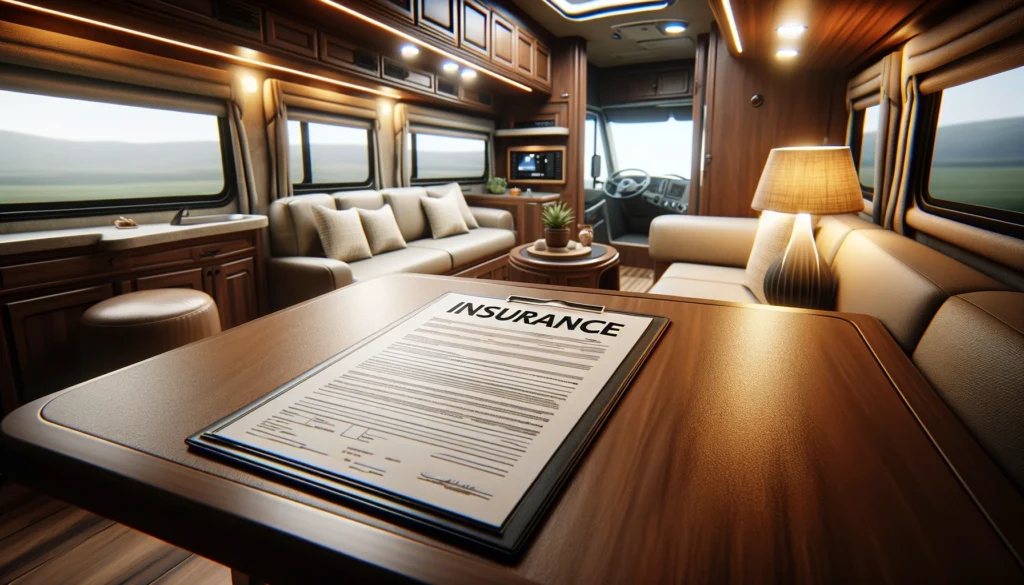Understanding Extended Warranties vs Insurance
There are so many things to love about RV life. You get to experience spectacular scenery, you have unique access to new places, and you learn so much about the world you live in. There is never a dull moment on the road. RVers need to be prepared for anything, including the less fun aspects of leading this adventurous RV lifestyle. Some of that preparation involves understanding the difference between extended warranties vs insurance.
Accidents Will Happen
As Elvis Costello once sang, accidents will happen. Sometimes the road gets a little bumpy and RVs break down, or an accident occurs. Extended RV warranties and insurance are designed to protect your budget from these mishaps and misfortunes. It’s important for every vehicle owner to understand the differences and similarities between extended warranties vs insurance. Both types of coverage are designed to protect you from unnecessary costs; however, they cover very different things. Here is everything you need to know about RV extended warranties vs RV insurance.
What is an Extended RV Warranty?
An extended warranty, also called an extended service contract, is designed to protect you from the cost of unexpected mechanical and electrical breakdowns. They typically last between one and eight years, whereas you may renew your vehicle insurance annually or semi-annually. The length of your term will depend on a few eligibility factors such as vehicle age, model type, and mileage.
According to claims data, three in ten RVs will suffer a major breakdown by just the second year on the road.
Wholesale Warranties

Unfortunately, RVs are prone to major failures. By year five, that number jumps to eight in ten. RV repairs can cost thousands to tens of thousands of dollars. Your extended RV warranty provider will cover the cost of repairs, labor, and replacement for all covered components. Some programs may offer additional perks, such as mobile mechanics or even trip reimbursement.
Dealers will typically offer a basic extended warranty plan. RV warranty brokers, like our friends at Wholesale Warranties, will offer a greater range of options and customization. Brokers are a great option whether your RV is new, or used, and typically offer free quotes.
There are two main types of warranties available for motorhomes and trailers: comprehensive policies and exclusionary policies. Although they both offer extensive protection, they provide different levels of coverage. Much like understanding warranties vs insurance, understanding the types of warranty is important as well.
Comprehensive RV Warranties
A comprehensive extended warranty may also be referred to as a listed-component warranty. This is because each covered component is explicitly listed in the contract. Comprehensive RV warranties typically cover all the major components, such as the engine, transmission, air conditioning, water system, and electrical. Comprehensive warranties offer a range of coverage for some of the most common and most expensive repairs. If you want a more affordable policy but still want extensive coverage, a comprehensive policy is a great option.
Exclusionary RV Warranties
Exclusionary RV warranties offer the highest available level of coverage. These programs cover virtually any mechanical and electrical component your RV may house. These contracts provide a small list of exclusions, which are generally aesthetic components, items covered by your insurance, and maintenance services. Such exclusions may be windows, paint, fabric, and pre-existing conditions. With an exclusionary RV warranty, if your failure is not specifically excluded, it’s covered! For total coverage and peace of mind, an exclusionary warranty is the best choice.

What is RV Insurance?
Where warranties will cover mechanical and electrical breakdowns, RV insurance primarily covers damage caused by accidents, physical damages, and issues caused by weather or vandalism. If you’re looking for a plan, you should always consider a company which specializes in RV coverage. RVs are mechanically different – and more expensive – than everyday vehicles. It is a wise choice to work with a company familiar with how RVs work.
Unlike extended warranties, insurance is a legal requirement. Insurance requirements may vary by state, so before you purchase your insurance policy, be sure to check your state’s minimum insurance coverage requirements. Just like with RV warranties, however, you also have options in terms of level of coverage. There are two main types of insurance: minimum liability coverage and comprehensive or collision coverage.
Minimum Liability Coverage
Liability coverage protects an at-fault driver, covering payouts and legal costs when the driver is held legally liable for any damage caused in an accident. Liability coverage provides the driver with protection from claims resulting from injuries, damage to other vehicles, or damage to property. These insurance plans are more affordable than policies that offer greater coverage. These plans typically meet your state minimum insurance requirement.
Comprehensive and Collision Coverage
Although they are more expensive, comprehensive and collision policies offer greater coverage. Comprehensive policies will cover the cost of repair and replacement of your vehicle in an incident. Additionally, comprehensive policies often also cover damage to your vehicle in a non-collision incident. You will be protected from natural incidents, break-ins, and other drivers.
Should I Consider an RV Extended Warranty?
Although they are optional, it’s important to keep in mind that RV extended warranties cover what insurance does not. Your insurance will not cover a sudden engine failure or slide-out breakdown, and these repairs tend to cost in the thousands. An extended warranty protects your travel budget from unnecessary expenses. Even though you don’t need a warranty, they are certainly worth considering for the sake of full protection, savings, and peace of mind. A reliable RV warranty along with RV insurance coverage is the best way to protect your RV travel budget, and stay on the road, where you belong.


